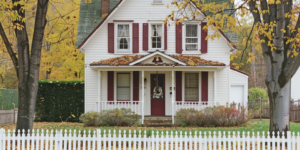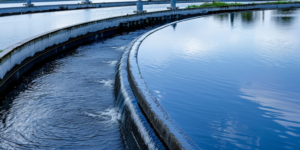Sustainable Businesses in the Pacific Northwest
Business owners in Oregon have been making sustainability part of their business model for years. If you have an existing business or you’re thinking about starting one, you need to consider courses of action that will stop harming the planet. Here are some ways businesses have either entered the sustainable marketplace or have chosen to utilize sustainable practices as part of their business model. Companies that make sustainability a focus can not only save money in the long run, they can make a positive impact on the community by reducing their footprint, and they can attract forward-thinking consumers who support sustainable growth.
Reduce – Reuse – Recycle
Recycling can refer to the products you use every day, the products you use for your building, or even the building itself, and recycling can be employed by literally any business in hundreds of creative ways. Inside your day-to-day operations, there are ample computer programs available to help your company move your paper-based operations into the cloud whenever possible so that you can reduce your dependence on paper, ink, and filing supplies. If you are unable to avoid paper-based systems, there are plenty of options for shredding and recycling as well, and several well-established companies now offer recycled toner and even sustainably created toner.
Some companies have taken their recycling programs to the next level; The Mill Casino Hotel & RV Park, for example, remodeled a ramshackle mill for their business location, even making their motto, “site for shore eyes” in a punny nod to their extraordinary revitalization project on the coast of Oregon. Other developers have chosen to remodel historic buildings like the Sovereign Hotel in order to preserve important pieces of local history, but this is an excellent sustainable practice. These types of remodels will often include more energy-efficient doors and windows, which can help reduce energy costs, as well as updates to the building’s electrical infrastructure.
Other remodeling projects throughout the region not only update dated or damaged office space but add new “green” features to buildings to provide a wide range of benefits to employees, customers, and consumers. One such project in the Con-Way area will even boast a partial green roof, which helps reduce climate control costs and things like the Urban Heat Island effect, as well as in small part improving air quality. Some of these projects include the re-use of discarded building materials or even new building materials made from recycled products.
If you have the resources to build a new structure or renovate an existing building for your business, consider the benefits to making your project LEED certified; there are over 1,200 LEED-certified projects in Oregon and over 2,000 in Washington. LEED Certification applies to not only the construction of the building, but also the ways the space will be used more sustainably once occupied. There are certification programs for almost every type of build or remodel, and they range in goals from significantly reducing environmental impact all the way to having a net zero carbon footprint.
Renewable Energy
Washington and Oregon have a thriving renewable energy sector, with businesses great and small participating in this ever-growing marketplace. Over the past 10 years, one emerging market has been the conversion of things like restaurant cooking oil into a viable type of biodiesel energy. Oil recycling in Portland, OR as well as Washington State is a rapidly growing market that perfectly meets two needs; restaurant owner’s need to safely dispose of excess kitchen grease and fry oil, and fleet and trucking owner’s needs to reduce fuel costs.
As entrepreneurs, inventors, and biochemists get creative with the ways we currently use and dispose of products in our economy, you can expect to see additional new market segments created to enhance sustainability. Even so, more and more traditional businesses are beginning to support the new energy economy; McDonald & Wetle, a company that has performed commercial roofing in the Portland metro area since 1921, has completed several solar roof and eco-green roof installations. This is just one example of how traditional businesses can gradually move into the sustainable market while maintaining their standard product offerings.
With the cost of solar energy continuously dropping, more and more homes and businesses are installing solar while taking advantage of any available tax credits. According to the Northwest Power and Energy Council, the recently completed Boise City Solar Plant will help lead the way and provide important data for a host of additional solar projects in the region that include municipal, commercial, and residential installations.
Small wind installations have struggled for viability over the years, but Vertical Axis technology along with flow dynamics are constantly being refined and improved, which means this type of renewable energy isn’t down for the count yet. Companies like O-Wind Turbine and City Windmills Holdings, for example, are refining Vertical Axis wind turbines that take up a small rooftop footprint similar to a typical rooftop ventilator turbine.
Green Practices
Even if you are a small business owner, such as a car accident attorney, unlikely to make any major structural changes, there are still several things that can be done in your business to promote sustainability. Doing so not only can save money, but it can boost employee morale and provide them with additional ways to bring value to your customers and community. Replacing all of the fluorescent or incandescent lighting in your office with LED tubes and bulbs can help your electric bill. So can small building modifications like installing daylighting tubes.
In cities where traffic is a problem, some employers have gone so far as to modify office hours for some employees or even set up server and VPN technology that enables some employees to occasionally work from home. Providing office incentives for employees who carpool or make viable efficiency suggestions is another way to encourage your employees to participate in sustainability and foster employee engagement.
Installing energy-efficient appliances in your breakroom is another helpful practice that can payoff in the long run. If your kitchen doesn’t have a dishwasher, installing one can help employees reduce the use of paper and Styrofoam products, and providing a water service can help reduce single-use plastics as well. If you have a local laundry service or a utility closet where you can install a washer/dryer combo, you can make a change from using paper products to towels in your kitchens and bathroom sinks. These types of practices can reduce the amount of waste or recycling materials coming from your kitchen, and energy-efficient appliances can help reduce your electricity costs.
Your choice of office supplies can make a positive impact, whether you use recycled paper or pens or non-toxic cleaning materials, and many people are beginning to choose products that come with packaging waste as well. There are so many ways for your business to directly and indirectly participate in the sustainable economy, and new methods and materials are constantly being invented.
Staying on top of trends as the emerge and change annually will help you keep your costs down, your employees motivated, and your community healthy. Since the 1990’s, the concept of the Triple Bottom Line has become more and more popular, and businesses who formally adopt this practice often enjoy recognition as entrepreneurial stewards of their community and the environment.







